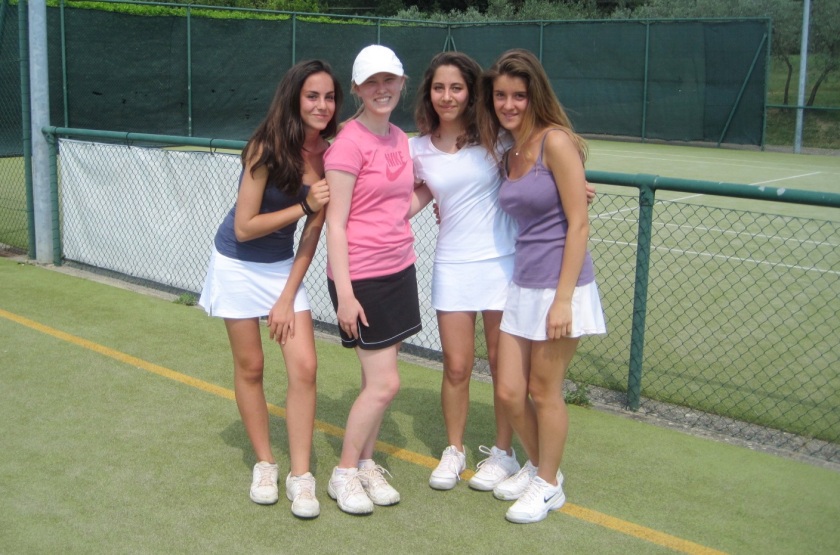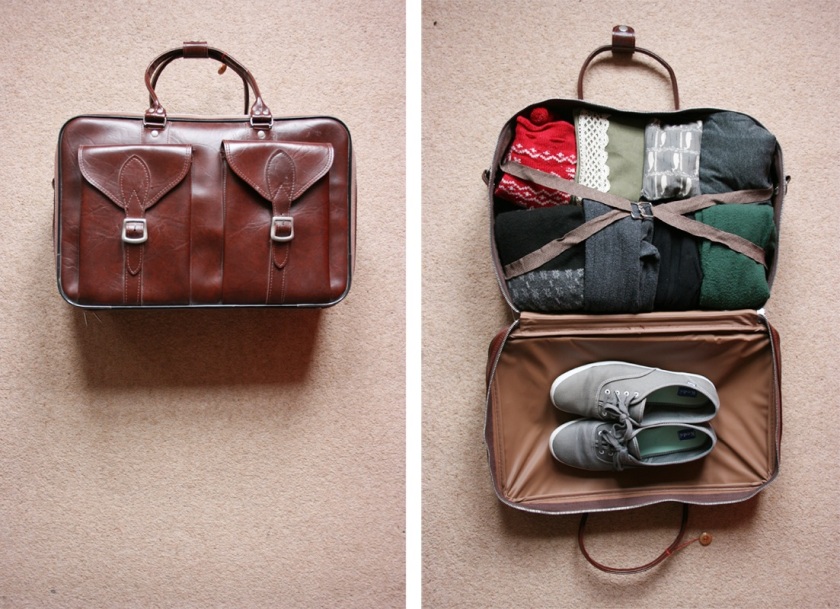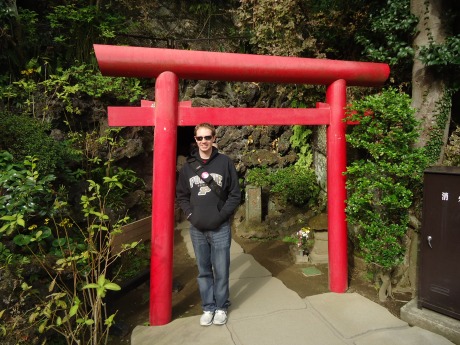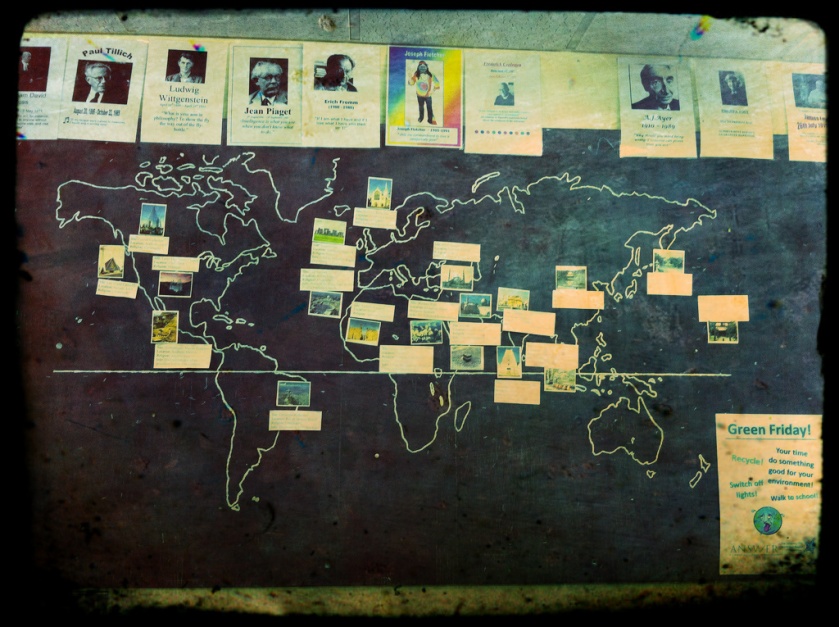This may surprise you, but here at DenizenMag.com, we actually get emails from TCK significant others from time to time, asking for advice on how to date a TCK. Like the this one I received earlier this summer:
“I recently started dating a girl who is a self described ‘Air Force brat.’ I’ve traveled a bit myself, but I really can’t connect with her on it because she grew up doing it and I did it as a passion in later life. Any advice on how to connect with her or maybe some tips on things I should look for?”
At first, I thought some of Denizen’s writers should cobble together a response. But then I realized, what the heck do we know about dating ourselves? So, we reached out via a survey on our Facebook page, asking TCKs to get their significant others to weigh in and help give some advice. So… what’s it like dating a TCK? And, what advice would you give to other TCK significant others?
We were impressed by the diversity of responses. These significant others met their TCK online, in Mandarin class, in South Africa, in boarding school. They live in Macedonia, Ghana, Brazil, Canada, South Africa and Washington State. They are married, dating, or have dated a TCK.
Here are their answers.
What’s it like dating someone who considers many different places “home”?
“Being with a Third Culture Kid is an eye-opening experience. …You get a chance to speak different languages, eat different food, and practice different ways of living. It puts one’s own existence in perspective as one of a diverse, global community. It’s also great because everyone always thinks my wife is so cool because she’s been everywhere, and that makes me cool by association.” – David Negron, United States, married to a TCK
“It’s exciting. You know that no matter where you may live in the future, it won’t be as difficult for him to adjust because he has had to adjust most his life.” – Autumn Cline, 21, Virginia
“Intimidating, in a way. I’ve only lived in two places, both in the USA and both in fairly similar climates. Sometimes I feel a bit underachieving for not having been to as many different countries as my partner has lived in. I can also feel a bit separated from her as well, as she has all these cultural references that I don’t, and visa versa.” – Jackie Lucas, 25, Washington state, married to a TCK
“The emphasis of experiencing a new place together will be more important to him than material gifts. This is a good thing! ‘Home’ will always be where I am and not an actual location related to his past.” – Anonymous, 25, Macedonia, married to a TCK
“You come to understand that there is much about their life you will never understand. Their stories of life growing up will usually one-up you and your life may seem dull in comparison. But over time, you appreciate the differences of experience that created this person you are attracted to and shaped them into the person that they are. …I love TCKs. My TCK and I just moved our family abroad and we have two TCKs of our own. I am the only non TCK in a family of TCKs.” – Anonymous, 39, married to a TCK for 15 years.
“Rema doesn’t consider any location ‘home.’ It makes for a difficult answer to the question, “So, where is Rema from?” To combat that, we worked together to make-up a short (read: false) response to combat the 7 minutes that are inevitably required for a more accurate answer. We’re consistent in using that shorter answer until we know that the other side is actually interested or ready for the full story.” – Scott Oxandaboure, 31, San Diego, California, married to a TCK
What’s the best part about dating a Third Culture Kid?
“The exposure to things I probably never would’ve tried on my own.” – Anonymous, 29, Ghana, married to a TCK
“The opportunity to learn about other cultures. Cooking at home becomes an adventure in international cuisine, as she misses dishes from so many places. I find she is always tuned into what’s going on in other places in the world, and not just in Brazil – and I find myself following suit. It also allows me to share her much more liberal and culturally diverse views on world events and even on day-to-day situations.” – Anonymous, 32, Brazil
“I feel very confident traveling with him and am proud of his knowledge of world events. His worldview is sexy. …He also helps me push my limits – snorkeling, safari, and more travel. This has given me the life I only dreamed of.” – Mel, USA, married to a TCK for 2 years
“The compassion and awareness of other people and other experiences was amazing. She constantly surprised me with her knowledge and passion for those around her.” – Darrell Ullriksen, 31, Canada
“She’s incredibly open to new experiences and doesn’t really have the same boundary issues that non-TCKs tend to have. She also doesn’t view traveling to other countries as a major event that must be obsessed over, excessively prepared for, and worried about; we just go where we want to go when/if we are able to. There’s no real psychological build-up or anxiety about travel and that’s very refreshing.” – Christopher Bell, 32, Florida, dating a TCK
“They are free spirited. They have an abundant supply of adventure, help get out of one’s comfort zone and expand it.” – Anonymous, 32, South Africa, dated a TCK
“The new experiences he gives you. The new friends you make on your adventures together; their ‘family’ all over the world who will be willing to help you when you are in their neck of the woods; the home you will set up together will contain tablecloths, serving plates, etc. from all over the world. And lastly… that you, and only you will ever be ‘home’ to him!” – Anonymous, 25, Macedonia, married to a TCK
What’s the worst part about dating a Third Culture Kid?
“It’s difficult because she doesn’t feel ‘home’ anywhere, and at the same time identifies ‘home’ as several places; so much so, that she always says she feels most at ‘home’ in an airport. That leads to her feeling homesick often, and not quite sure where this place she is longing for actually is, and has difficulty adapting in places that have less cultural diversity. I’ve also discovered that one’s sense of humor is also cultural – things I find funny often cause her to stare at me blankly, not quite sure there was a joke at all.” – Anonymous, 32, Brazil.
“Immigration paperwork. It’s expensive, laborious, and requires a level of organization found only in The Container Store.” – David Negron, United States, married to a TCK.
“It’s the time difference and geographical distance. We met at a boarding school in my hometown, but now that it’s summer, she’s all over the place. Skype is incredibly helpful, but often the time difference is 6, 10, 12 hours, and it can be really hard to line up our schedules enough to talk for very long. And video chat is great, but I miss hugging her, sitting next to her, kissing her on the nose, fixing her hair. I miss those.” – Peter Moon, 18, Lakeville, Connecticut, dating a TCK
“The miscommunications that happen when one plus one equals two entirely different things depending upon where you come from. By and large, the only times we ever really fight is when one of us says something that means something else entirely than what the other has been brought up to think it does.” – Jackie Lucas, 25, Washington State, married to a TCK
“She very often didn’t feel content and settled doing ‘normal things.’ Plus, she didn’t understand my cultural references (which isn’t necessarily a bad thing… it made me look more clever because she didn’t realise I was just quoting Alf).” – Darrell Ulriksen, 31, Canada
“She can be occasionally arrogant about her past and can’t entirely understand people who didn’t have her upbringing. At its worst, she sometimes looks down on those who have had a more parochial upbringing, and the prospect of living in one place for very long, especially if it’s a small town, can fill her with anxiety.” – Christopher Bell, 32, Florida, dating a TCK
“It’s difficult to understand each other. One wants to be in a different place all the time and you end up feeling like they want to be without you. …Because when they say ‘I want to live in Canada,’ you are not included in those plans/words.” – Anonymous, 32, South Africa, dated a TCK
What advice would you give to someone who is dating a Third Culture Kid?
“Realize early that you will never be able to understand the way the other grew up. Swap stories, learn from each other, learn the art of compromise because your entire relationship will depend on it. Understand that “home” to them depends on people, not places. And make sure to always have a bag packed.” – Chelsea Poole, 22, North Carolina, dating a TCK (See her blog post on “When an FCK Falls in Love with a TCK.“)
“You just have to both try to communicate well, trust each other a little, and give things a chance. Strive to get a little free time to talk, to explain what you’re going through in another different way, etc. Keep communicating honestly and openly.” – Peter Moon, 18, Lakeville, Connecticut, dating a TCK
“Be patient – especially with the homesickness crises – and take the opportunity to learn more about the places she’s lived and cultures she understands. You’ll gain an interesting and wider perspective on the world and as a result will have a better and closer relationship with her.” – Anonymous, 32, Brazil,
“Listen and learn from the TCK. Also, gently challenge the TCK on their limited perspective as well. Often TCKs have a negative perspective of people who haven’t traveled and experienced as much. Help them develop an understanding that a limited perspective isn’t necessarily ignorance, but is the result of a different life. People without so much travel and world experience can’t be expected to see the world the same way a TCK does – and that person isn’t necessarily wrong – the perspective is just different.” – Anonymous, 39, married to a TCK for 15 years
“I’d say two things:
1. Be steadfast in your willingness to be a stable part of a TCK’s life. In my experience, TCKs see so many people come and go that it comes to be expected that you’ll one day be gone. They need reassurance – once you’re ready for this type of commitment – that you aren’t looking to be a short timer.
2. Don’t buy too much crap. It just means more to move when their mental egg timer goes off… ‘So, it’s been 2 years… what’s next?!'” – Scott Oxandaboure, 31, San Diego, California, married to a TCK
Homepage image courtesy of Photosightfaces













